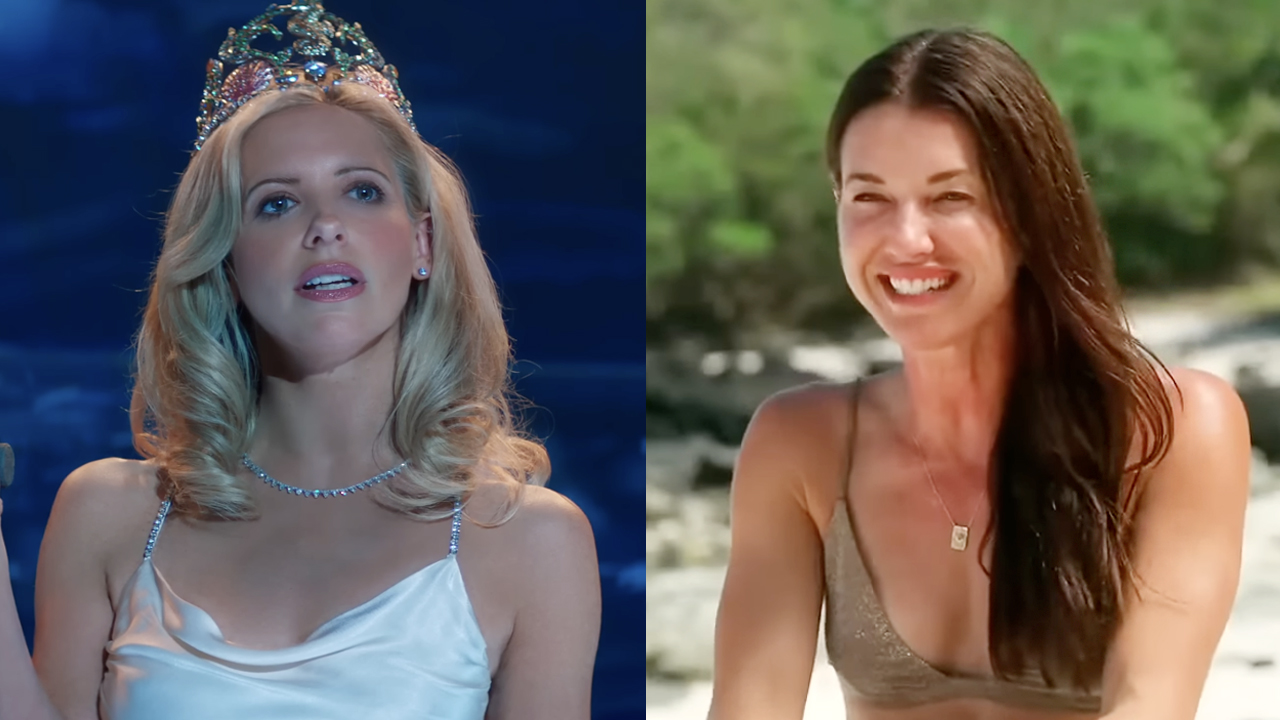The longest church service I can recall attending was an Easter vigil mass. The celebration began on a Saturday evening, but stretched into the early hours of Sunday as newcomers were baptized, and adult catechumens received full communion for the first time. There was singing. Lots of singing. All told, though, the multi-hour mass still felt considerably shorter than Christopher Spencer’s dutiful, passionless Son of God
That’s not possible. Son of God, according to press notes, clocks in at a mere 138 minutes, editing out sequences that previously belonged to co-producer Mark Burnett and Roma Downey’s acclaimed mini-series, The Bible, which aired on The History Channel. Maybe I sat through the wrong cut? Maybe my theater was shown the entirety of the 10-hour Bible telecast? Sure felt that way.
Following a montage of Old Testament staples – including David smiting Goliath and Moses parting the Red Sea -- Son of God begins in Nazareth, where a baby is born to a virgin and a carpenter. The wise men barely have time to drop off their gifts before God skips ahead. Jesus Christ (played by the handsome and gregarious Diogo Morgado) begins his ministry by recruiting disciples, preaching to growing crowds, and terrifying the territorial priests and elders.
As it stands, Son of God acts as a “Greatest Hits” for Jesus, pausing briefly at each of his most-widely-known miracles but presenting them without necessary context. Son of God is all Gospel text, no sermon – meaning we get the gist of Jesus Christ’s spectacular existence without much insight into how or why this prophet became the basis of a global religion. The miracle of the loaves and fishes? Check. The resurrection of Lazarus? It’s here. But they are stitched together as sequences with no context. A non-Christian who has absolutely no idea who Lazarus is will wonder why Jesus suddenly is standing over a deceased man. Who is the guy? How did he die? Why would Jesus bring him back? Answers aren’t provided unless you’ve brought them to the film on your own.
Most sitting in the theater for Son of God will, however, bring this understanding to the theater. The movie is the textbook definition of “preaching to the choir,” delivering its message to a gathered crowd who hears them told on an annual basis in church services. Son of God goes through the holy motions and plays it incredibly safe, religiously adhering (pun intended) to the letter of each tale. It’s workmanlike in its approach to the accomplishments of Jesus Christ, but it doesn’t work as a cohesive movie.
In fact, it isn’t a movie. Yes, it’s playing in theaters, but Son of God doesn’t transcend its origin as a made-for-cable television product. Morgado is a magnetic Christ, conveying the convivial nature of a beloved teacher as well as the brutality of Jesus’ passion and crucifixion. He’s countered by the broad strokes of Greg Hicks’ Pontius Pilate, the clear “villain” of the piece who’s portrayed with such mustache-twirling venom that Pilate kicks families off roads if they block his caravan. Son of God might have enjoyed a larger-than-usual television budget, but Spencer shoots in close-up to hide sets and locations that undoubtedly had to adhere to a tight bottom line. Costumes are little more than robes and sheets. “Crowds” consist of 10-15 extras. God loses any epic sweep it might have generated on a television screen. In theaters, it looks like TV blown up on the big screen. Those seeking an artistic take on a familiar Biblical story will likely have to wait for Darren Aronofsky’s Noah.
I’d be curious to see how the industry reacts to Son of God, but I fear the results might be skewed. Church groups already are buying up theaters with the hope of bringing groups to screenings, and I have little doubt they’ll enjoy what they see – faithful recreations of stories they hold dear. I’m more interested in the creative aspect of God, and whether or not it begins a trend where audiences happily pay to see content they previously DVR’d. If Son of God makes Passion of the Christ money, will Hollywood revisit past television successes in hopes of editing it down for theatrical consumption? Could we see a three-hour cut of Lost, or a Breaking Bad movie consisting of the best of the show’s five seasons? Heaven help us if this becomes the norm.
Your Daily Blend of Entertainment News

Sean O’Connell is a journalist and CinemaBlend’s Managing Editor. Having been with the site since 2011, Sean interviewed myriad directors, actors and producers, and created ReelBlend, which he proudly cohosts with Jake Hamilton and Kevin McCarthy. And he's the author of RELEASE THE SNYDER CUT, the Spider-Man history book WITH GREAT POWER, and an upcoming book about Bruce Willis.

